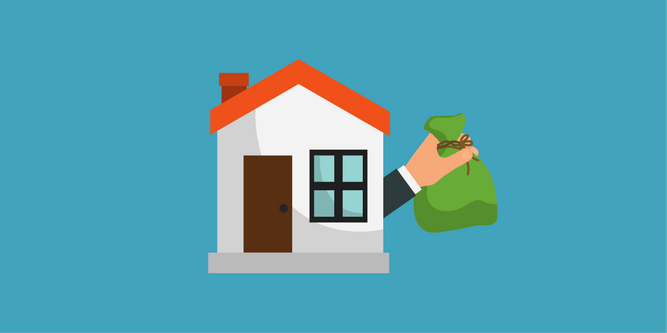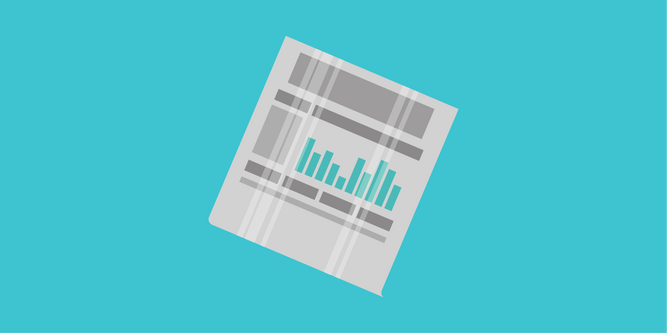Straight out of college, the leap from living in your parents’ house to your own apartment can be a tough one to make. If you’re going to be having no real financial assistance from your parents, this makes the situation even more extreme.
It’s definitely possible to manage, so long as you have a steady source of income and a budget to work from.
By the time you graduate, it’s the societal norm to have moved out of your parents’ house.
Even if you prefer not to honor tradition, perhaps you have your own reasons for wanting to move. Living on your own is expensive, but it’s not unmanageable.
Can you afford to move out on your own?
As you may already know, the bulk of your expenses will go towards housing costs when you’re living on your own. Chances are pretty high you’re going to rent an apartment.
Whether or not you’re going to have roommates is entirely up to you. For that reason, you’ll want to consider all these new expenses you are going to incur:
Rent
The first big one is rent. Depending on where you live, finding a decent place to stay could run into thousands of dollars a month. If you live in a major city, the first few years of living on your own will probably be with roommates.
If you don’t like living with other people, then hopefully you’re not claustrophobic and you don’t mind living in a closet-space-sized room.
If you live in an expensive city like NYC or DC, you're going to have to get creative. For instance, maybe live slightly outside the city to save money on rent.
When signing your first lease, make sure you're aware of everything you'll have to pay. For instance, some places might require you to pay the first AND last month's rent. Some will have admin fees, move-in fees or a security deposit.
So even though an apartment might be $1,000 in rent, expect to pay up to twice as much in some cases to actually move in.
If you're not sure how much you can afford in rent, here's a calculator from Zillow to help you out.

Utilities
There are a few things around the house aside from rent that you may need. At times, they are included in the rent, but not always. If not, there are a lot of extra bills you are going to be faced with.
When you're apartment hunting, make sure you ask what utilities are included so you can plan for it in your budget.
This graphic breaks down the average cost of utilities (including cable and internet) to give you an idea of how much you can expect to pay.

Heat
Whether or not this expense is included in your rent will depend on the kind of heating your apartment has. If the heating in the apartment can’t be controlled manually, you are likely going to have the cost included.
Different types of heat have different costs. Gas, radiator or forced air can cost upward of $100 a month depending on how effective it is in your apartment and how much you use it.
Water
Costs for water and sewer have risen over recent years. Currently, the average family of four pays about $40 a month.
You will pay much less if you’re on your own, though. If it’s included in your rent, make sure you clarify that sewer, cold and hot water are all covered.
Electricity
Electricity is usually the most expensive utility at the end of every month. It should range from $20 to $100+ depending on how much you use in your apartment.
If your apartment is energy efficient, your bill may be a little lower. Also keep in mind that the need for air conditioning during the summer and heating in winter could drive this cost up $50 to $100.
Gas
Depending on how often you cook, natural gas for use on your stove should cost around $20 a month.
It could be less, but this depends on how often and how much you cook.
Washer/dryer
Some apartments come with a washer and dryer in the unit, which can be very convenient and save you from having to pay to do laundry every time.
However, it can also drive up your electricity and water costs, so plan accordingly.
Parking and/or public transportation
In large cities, parking is a rare commodity to find. If you live in a smaller city, you can get away with parking on the side of the street. But street parking it's own expenses like tickets and car damage repair from people dinging you when they try to park.
If the parking space isn’t included in the rent, it could cost up to a few hundred dollars a month.

Furniture
Most affordable apartments don’t come with furniture. It’s another really large expense you will have to keep in mind.
You’ll at least need a couch, mattress, a few chairs and a TV.
If you know where to look, you can find these items in thrift stores or retail stores like Target, Ikea and Walmart at fairly affordable prices.
Renter’s insurance
Many people don’t realize this, but the insurance your landlord pays doesn’t cover you or any of your belongings. In other words, should the building burn down, you’re not going to be compensated for anything you lose.
Even worse, you’ll be left without a place to live.
On the bright side, though, there’s a relatively cheap way to protect yourself: renter’s insurance.
Depending on how much coverage you get, renter's insurance can cost you up to a few hundred dollars a year, but will protect you and your belongings from damage and theft should a disaster occur.
These deals exist to help you get compensation and help you move should you be caught in a bind.
Most people haven’t heard of or prefer to turn a blind eye on the existence of renter’s insurance.
However, it will only cost an extra $15 or so every month. In the end, it could save you some heartbreak and a lot of money. Plus, some apartments will require you to have renter's insurance in order to move in.

Food
Food is another thing you obviously shouldn’t forget. Once you leave the comfort of college food, the need for a way to not starve to death becomes a real priority. The food may have been bad, sure, but at least it was something.
With time, you’ll probably realize that learning to cook is an essential skill to have and that eating out is an expense you don’t necessarily have to incur.
In fact, the average amount spent by individuals on food alone is $180 a month, 43% of which goes on eating out.
Cookware
Once you realize how much you can save by cooking your own food, you’ll need to get some stuff to help you get your cooking underway.
Luckily enough, utensils are fairly cheap at Walmart, Target or various thrift stores. Check out our list of kitchen essentials to get started.
Appliances
Most apartments these days come with fridge, oven and microwave, so you shouldn’t be too concerned about those.
If you manage to find an apartment that doesn’t come with them, you may have to consider getting a microwave, at the very least.
Cable/internet
If you’re lucky, your apartment might come with internet and cable as part of the rent. This should include Wi-Fi, but if not, that’s an extra $50-100 a month depending on the provider you choose or otherwise have to use.
If you’re on budget, then cable isn’t necessary. Ditch that for a Netflix and/or Hulu subscription instead.
Plus, if you have access to a sports bar, why bother with cable then? For the most part, it’s an unnecessary expense.
Personal expenses
The apartment on its own should cost a pretty penny. However, don’t forget to take care of yourself.
This will likely eat up a whole lot more of your budget once you’re properly settled in. These costs include paying off your student loan, credit cards, medical payments that aren’t covered by your insurance and cash you’re going to use on nights out.
The real costs of living alone
While all these expenses might seem overwhelming, keep in mind that a lot of them are one time purchases. For everything else, just create a budget to make sure you're able to pay everything on time each month.
Eventually, you'll have to break free from your parents and move into your own place, and into adulthood.



